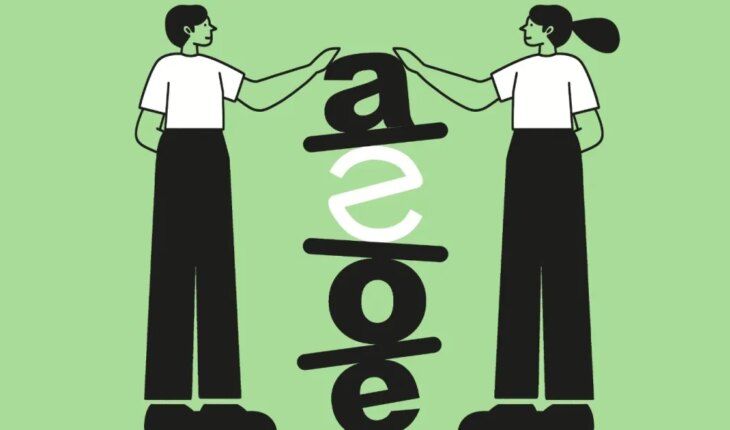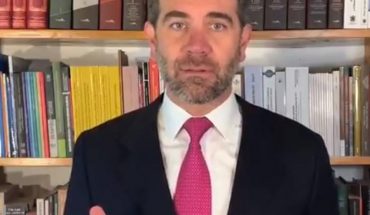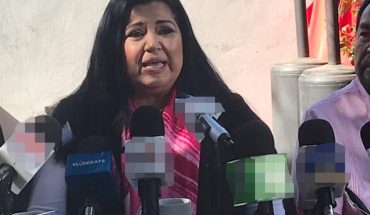This week, President Javier Milei ordered a ban on the use of inclusive language in public administration, and the decision was announced by spokesman Manuel Adorni. “We are going to proceed to initiate actions to prohibit inclusive language and everything related to the gender perspective,” the official said. It will not be possible to use the letter “e”, the at, the “x”, said the spokesperson and added that “the unnecessary use of the feminine gender” will be avoided in the drafting of public documents. As a result of these statements, the repudiation through social networks was forceful and feminist, social and LGBTQ organizations spoke out against it. To try to understand what this news means and how it impacts the world where the “e” is a universe of its own, I spoke with Juana Molinari, co-founder of the transactivist youth organization “El Teje”. The discussion regarding non-sexist language is one of the most racy and reactionary debates on and off social media. How we speak and what we say when we say is part of an immense and infinite world of possibilities and meanings. The way of speaking has never remained static in our history and is a clear reflection of the fact that the culture that expresses itself through language is the one that modifies and modifies it. The Royal Spanish Academy, for example, which is the regulatory body for words, adds year after year new idioms and meanings that come out of a language that is alive and constantly changing. Although for now the universal in our language is the masculine, the human being, the man, the doctors, the children, the students, everything that integrates people, always has the “o” as a general rule, during the last decade that has changed. Just as culture is modified, so is how that culture is reproduced. The space for human rights came along with feminist movements to the mainstream and was crowned with a Gender Identity Law that explains, among many other things, the importance of a consented identity.” Inclusive language gives many people the possibility to represent themselves, think about themselves, and exist. To name ourselves as they identify themselves and stop being what the norm says we should be. A norm that establishes which gender identities are acceptable and which are not. Non-binary identities demonstrate that reality is not as rigid and structured as we pretend to be when talking about normality. The only thing these things generate is to hide the violence exerted by gender norms,” explains the interviewee. Inclusive language does not exist alone, but it comes with a package of other measures that were gained until today and that are also being put into play today. Comprehensive Sex Education, equal marriage, and legal abortion are other conquests that are in danger and that have as common points the empowerment of women, dissidents and children. The importance of language, among many things, is tied to the possibility of knowing and also naming oneself. If that doesn’t happen, there’s a big part of history that won’t be reflected. “For years the collective has been fighting to achieve the visibility we need to be included in public policies and we are not going to go back on the rights we have already won. They’re not going to be able to silence us or make us invisible again,” he adds. EATING VERSUS NAMING ONESELFThe inclusive or non-sexist language debate has many facets, and one of them focuses on the crisis. Inside and outside the Peronist movements, the struggle between the importance and centrality of public policies that advance the rights of the LGBTQ community was and is key.” When the people are hungry, there are no individual rights that matter,” say those who believe that the material issue is above the rest, in a decade in which language served to include and also to lower the line. Because when someone says “all,” they mean much more than that. The letter “e” is directly linked to the gender perspective, a view of the world that is the specific enemy of La Libertad Avanza.” At one point I feel like they’re doing it to distract and at another, they’re doing what they said they were going to do. When they won the elections we already knew that they were going to come for our rights, which is the only way for women and dissidents to enter the agendas of the right,” says the activist. The famous “cultural battle” works as a smokescreen but at the same time it is, in short, one of the postulates that LLA seeks to destroy (sic). “Inclusive language challenges their traditional, binary conceptions of gender, as well as their dominant version of history. The discussion of identity putsand question the patriarchal and heteronormative power structures on which they are based, threatening their position of dominance and control over historical identities and narratives. In addition, the visibility and recognition of our identities challenges their agenda of perpetuating gender oppression,” she adds. The plan seems perfect, to use “gender ideology” as a distraction to apply economic measures in parallel, confuse and achieve the task without too much margin for error. But a large part of the base of the voters of La Libertad Avanza is also sustained by hatred towards women and minorities. It was that axis, in fact, a pillar of the presidential campaign. “It ceases to be a distraction and becomes a decision to fulfill the objective of excluding us from a phalogocentric and closed economy in which the conservative and oppressive right believes,” analyzes Juana.THE TWO TO THE ENDIf the battle of the symbolic (the word) as opposed to the economic crisis happens as an interesting debate to disarm, The idea of being able to carry out both issues seems to be a possible way out. The line that one is above the other confuses an entire country that has one of the most compelling and accurate human rights stories on the planet. Identity is not just a queer issue and the Mothers and Grandmothers of Plaza de Mayo know it. In fact, when it comes to establishing public policies that improve the quality of life of the population, the need to have a name to be able not only to identify yourself but also to draft projects is imperative.” Banning our language limits the state’s ability to address gender inequalities and promote equity, which can negatively impact policies and programs aimed at protecting our rights. This measure also sends a regressive message in terms of human rights and may contribute to a less inclusive and respectful social climate.” In a country sunk in the deepest contemporary economic crisis, it seems almost utopian to think about what language we tell ourselves in, but at the same time who we are and how we tell ourselves is part of our story. Women and dissidents have been active politically, legally and socially for many decades now, stopping this advance with prohibitions and censorship only perpetuates a dispute that seems to have no end. Regardless of who it may be, adaptation to new social forms is a positive and unstoppable evolutionary characteristic.
Original source in Spanish
Eating vs. naming oneself? The False Dichotomy of Inclusive Language
March 1, 2024 |





